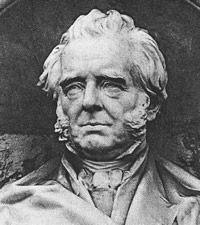Venn, Henry (1796-1873)
Anglican missions administrator and theorist
 Venn was born at Clapham, London, into a leading evangelical Anglican family. His grandfather, Henry Venn (1725-1797), was an outstanding pastor-evangelist identified with the Evangelical Revival. His father, John Venn (1759-1813), pastor to William Wilberforce and the Clapham Sect, presided over formation of the Church Missionary Society (CMS) in 1799 and helped found the Christian Observer (1802). Educated at Queens’ College, Cambridge (B.A., 1818; M.A., 1821; B.D., 1828), Venn was ordained a deacon (1819) and a priest (1821). While serving Drypool Parish, Hull, he married Martha Sykes in 1829. He became vicar of St. John’s, Holloway, in 1834. In 1846 he was made a prebendary of St. Paul’s Cathedral. His return to London allowed him to resume regular attendance at meetings of the CMS, of which he became a member in 1820. His administrative gifts were soon evident, and despite precarious health, he accepted appointment as CMS clerical secretary in 1841.
Venn was born at Clapham, London, into a leading evangelical Anglican family. His grandfather, Henry Venn (1725-1797), was an outstanding pastor-evangelist identified with the Evangelical Revival. His father, John Venn (1759-1813), pastor to William Wilberforce and the Clapham Sect, presided over formation of the Church Missionary Society (CMS) in 1799 and helped found the Christian Observer (1802). Educated at Queens’ College, Cambridge (B.A., 1818; M.A., 1821; B.D., 1828), Venn was ordained a deacon (1819) and a priest (1821). While serving Drypool Parish, Hull, he married Martha Sykes in 1829. He became vicar of St. John’s, Holloway, in 1834. In 1846 he was made a prebendary of St. Paul’s Cathedral. His return to London allowed him to resume regular attendance at meetings of the CMS, of which he became a member in 1820. His administrative gifts were soon evident, and despite precarious health, he accepted appointment as CMS clerical secretary in 1841.
 Venn was one of the most influential mission statesmen of the nineteenth century. An efficient and effective administrator with a prodigious capacity for work, he led in forging a new character for the Anglican communion by the establishment of eight bishoprics overseas. In 1841 CMS had 107 European and 9 African and Asian missionaries in service. By 1873 there were 230 European and 148 African and Asian missionaries. During Venn’s 32 years as clerical secretary, 498 clergy were sent out as missionaries. He stood in the front ranks of evangelicals for a generation and was twice appointed to royal commissions to represent this tradition. He both defined the evangelical position vis-à-vis Anglo-Catholics and Latitudinarians and sought to moderate the extremes of partisanship and eschatological theories that cropped up among evangelicals in the latter half of the nineteenth century, exerting his influence especially through the Christian Observer, which he edited during the last years of his life.
Venn was one of the most influential mission statesmen of the nineteenth century. An efficient and effective administrator with a prodigious capacity for work, he led in forging a new character for the Anglican communion by the establishment of eight bishoprics overseas. In 1841 CMS had 107 European and 9 African and Asian missionaries in service. By 1873 there were 230 European and 148 African and Asian missionaries. During Venn’s 32 years as clerical secretary, 498 clergy were sent out as missionaries. He stood in the front ranks of evangelicals for a generation and was twice appointed to royal commissions to represent this tradition. He both defined the evangelical position vis-à-vis Anglo-Catholics and Latitudinarians and sought to moderate the extremes of partisanship and eschatological theories that cropped up among evangelicals in the latter half of the nineteenth century, exerting his influence especially through the Christian Observer, which he edited during the last years of his life.
Venn is best remembered, however, as a mission theorist. Largely independent of one another, Venn and his American contemporary Rufus Anderson (1797-1880) sought to clarify the main goal of mission and the most effective means of realizing it. The concept of the indigenous church emerged as the central construct of mission theory. A church was judged to be indigenous when it was self-propagating, self-financing, and self-governing. Venn developed his theory of mission in a series of pamphlets and policy statements written in the years 1846 to 1865. He also wrote a book on the life of Francis Xavier and numerous pamphlets and policy statements.
Wilbert R. Shenk, “Venn, Henry,” in Biographical Dictionary of Christian Missions, ed. Gerald H. Anderson (New York: Macmillan Reference USA, 1998), 698.
This article is reprinted from Biographical Dictionary of Christian Missions, Macmillan Reference USA, copyright © 1998 Gerald H. Anderson, by permission of Mamillan Reference USA, New York, NY. All rights reserved.
Bibliography
Digital Text
Venn, Henry. The Missionary Life and Labours of Francis Xavier Taken from his own Correspondence: With a Sketch of the General Results of Roman Catholic Missions among the Heathen. London: Longman, Green, 1862.
Primary
Venn, Henry. To Apply the Gospel: Selections from the Writings of Henry Venn, edited by Max Warren. Grand Rapids: Eerdmans, 1971.
Secondary
Shenk, Wilbert R. Henry Venn, Missionary Statesman. Maryknoll: Orbis, 1983 [Includes a bibliography of Venn’s writings].
Stock, Eugene. The History of the Church Missionary Society: Its Environment, Its Men, and Its Work. 4 vols. London: Church Missionary Society, 1899-1916. See especially volume 2.
Portrait
“Henry Venn.” In Wilbert R. Shenk, Henry Venn, Missionary Statesman. Maryknoll: Orbis, 1983.
“The Rev. Henry Venn. Honorary Secretary of the Church Missionary Society, 1841-1872.” In Eugene Stock, The History of the Church Missionary Society: Its Environment, Its Men, and Its Work. vol. 2. London: Church Missionary Society, 1899. Opposite title page.